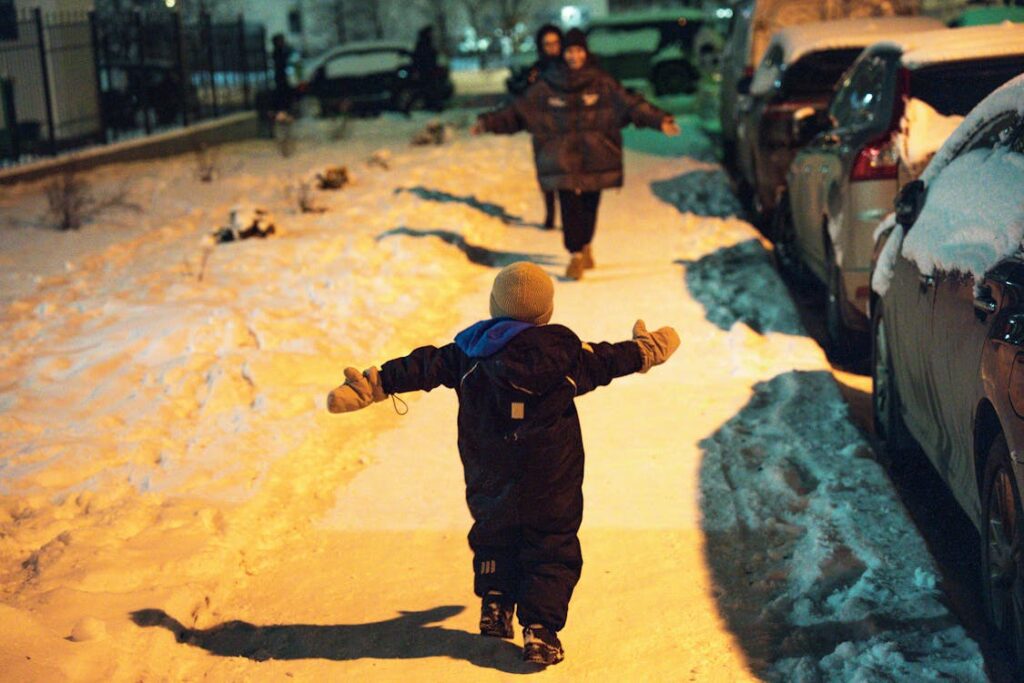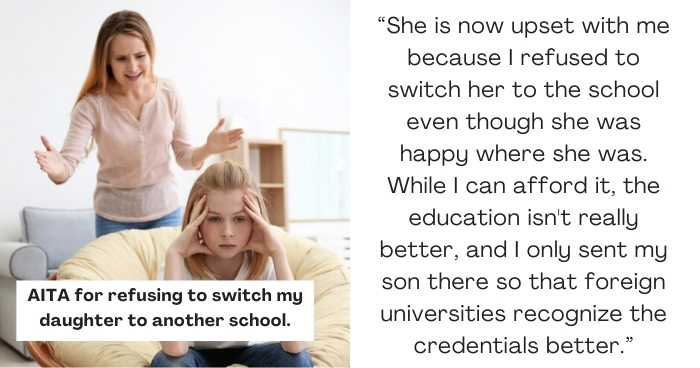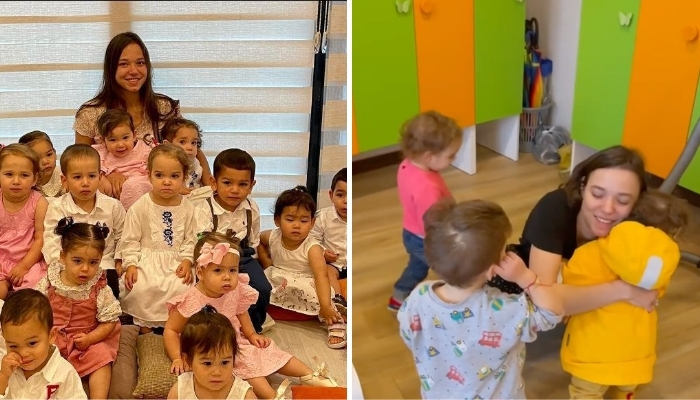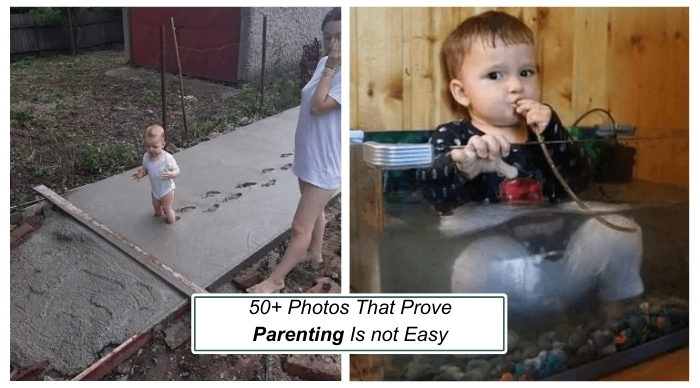How to Be a Fantastic Parent

Here, in one stellar piece that will have an impact on your entire family, we’ve compiled our favorite pieces of parenting advice from our panel of experts.
Nobody is a perfect parent, but there are myriad things you can do to become a great one. Over the course of the year, our board of advisors—a brain trust unmatched in the country when it comes to pediatric doctors, developmental experts and educators—offer the latest thinking when it comes to raising kids that are both healthy and happy.
Well, now we’ve collected our best nuggets of advice for you in one place. Generally speaking, this what the experts say about being a good parent and improving your parenting skills:
- Set limits
- Now it comes your time which you have to spend with your children.
- Be a good role model
- Praise your kids
- Trust yourself
- Teach your kids social skills
- Teach gratitude
- Make meal time family time
- Say “I love you”
- Encourage physical activity
- Continue getting routine health care for your children.
Read next to find out what that looks like in practice, and how to apply those tips from professionals effectively.
Set Smart Limits
Take charge. Kids going through the crisis of having to re-learn what is normal and what is acceptable actually want boundaries — what gives to them a sense of safety and order in what is for them an alien and chaotic new normal. And out of love be willing to set boundaries for your kids so they can engage from the comfort of their interest.
Do not hinder the constant exploration of your child. Your toddler has one ultimate goal in life and that is to be independent. If they can at this age pick up their toys away, take their plate out of the table, and get dressed on their own, let them do it. It is beneficial for a child’s self-esteem — and your sanity, to give them responsibility.
Don’t try to fix everything. Let the little ones find their own solution. When you lovingly witness a child getting annoyed over something petty and not rushing in to save them, you teach a child to be self-reliant.
Keep in mind that discipline is not the same as punishment! Setting boundaries is really about training your kids for the real world and really just helping them to grow into competent, caring and self-directed human beings — not punishing them.
Pick your battles. Too many rules and the kids will shut off and tune out. Never mind bickering over petty things like fashion and using the wrong restroom once in a while. Emphasize the deal-breakers such as no hitting, no rude talk, no lying.
Create Your Own Quality Time
Play with your children. Allow them to decide the activity, and forget about following directions. Relax and enjoy it—you don’t have to be the fun parent all the time, but play is a great way to connect. That’s the name of the game.
Every day they read books together. Begin when they are a new-born; babies are so fond of the sound of their parents voices. Reading a book together is an excellent bonding activity — and a springboard into a lifelong reading habit.
Schedule daily special time. Have your child pick an activity to do for 10–15 mins where you hang out together without interruption. You cannot demonstrate your love in a better way!
Encourage family time. Time with parents is the most available yet under-utilised resource in the lives of our children. Children whose parents engage with them perform better in classrooms, are better problem solvers, and are overall more well adjusted to whatever life throws at you.
Make warm memories. Your kids might not remember a lick of what you said to them, but they will remember the family traditions like a bedtime and game night that you had with them.
Be a Good Role Model
Be the example your children need to see. Your kids learn from what they see, and they see you. Instead of telling them what to do, modeling appropriate, respectful, good behavior works much better.
Fess up when you blow it. This is the best way to demonstrate your child when and how he or she should apologize.
Live a little greener. Kids are understanding how simple it is to take care of the environment from you. Reduce, Recycle, Reuse and Save it Every Day. Volunteer with friends to clean up litter in the neighborhood.
Always tell the truth. But isnt that the behavior you expect from your child? Lead by example all the way down to what it means to be honest.
Kiss and hug your partner in front of the kids. How your child perceives intimacy between adults — which comes partly from observing you — is one example of what intimacy looks, sounds and feels like. Which is why establishing a good standard matters.
Maintain respect on how other parents will raise their children Unless it’s wildly inappropriate, support your co-parent’s general approach to parenting. Arguing or criticizing will destroy your relationship and your child sense of security much more than accepting different standards from your own.
Know the Best Ways to Praise
Give appropriate praise. Instead of just saying; “You’re awesome!,” be specific about what is it that your child did that deserves a positive reinforcement. When I was off the phone too, you might say it was very difficult to ask for cookies and I appreciated your patience a lot.
Cheer the good stuff. Help your child understand from your response to his or her actions. If you see your child doing anything helpful or doing any nice thing, always let them know how you felt about it. In this way, you are rewarding the good behavior so that they will be more likely to continue doing so.
Gossip about your kids. Truth: Eavesdropping is much more powerful than told. Make Praise Work: Allow your child to overhear you whispering praise about them to Grandma, Dad or their teddy.
Trust Yourself
Give yourself a break. Picking up drive-thru when you are too tired to cook does not make you a bad parent.
Trust your gut. You know your child better than anyone else. Trust your intuition about their physical and emotional health. If you sense something is off, you are most likely right.
Say no, you know you want to — This is the hardest thing for many working mothers: to refuse extra responsibilities at work or to back away from being the constant volunteer at your kid’s school. We all know that you will definitely never regret that extra time with your kids.
You should not allow your kid to be disrespectful. Do not let your child be impolite, and donÕt let him say anything that hurts you or someone else! If they do, simply let them know with some firmness that you do not want any disrespectful behavior whatsoever.
Pass along your plan. Get the other caregivers in your kid’s life: your co-parent, grandparents, daycare teacher, babysitter to support you in promoting the values and the behavior you’d like to encourage. Which includes everything from to saying thank you, being kind and not whining.
You Better Teach Social Skills
Every single day, ask your kids three “you” questions. Conversation is an essential social skill and yet many parents miss out on teaching this. Questions such as, “What did you like the most about school today?” get a kid started. — “What do you do at the party where you go?” or “Where do you want to go tomorrow afternoon?
Try this bravery trick with kids. Have them always pay attention to the color of someone’s eyes. Eye contact will strengthen the timid child to look confident, it will make any child bolder and less prone to bully.
Validate your child’s feelings of intensity. After your child’s meltdown calms down, ask them “How did that feel like? and, “What do you think would improve that? Then listen to them. If you allow them to talk it over they are likely to recover from a tantrum more easily.
Raise Grateful Kids
Teach your child to be a responsible citizen Look for methods to serve others throughout the year. Volunteering is a great way to develop a sense of self-worth within kids.
Don’t raise a spoiled kid. Remember this: All children are a blessing, no child ever was the center of the cosmos. Teach them accordingly.
Discuss being a good person Begin talking about it: When you read bedtime stories for an example, ask your toddler if characters are mean or nice and ask why.
Talk to your children about the importance of values. The short answer: Because when you are kind, you are a good person. More importantly, you have confidence and self-esteem.
Have a “gratitude circle” at dinner every night. Take turn of each individuals who were really nice that day, go around the table and discuss about those generous individuals. I know it is sounding cliché, but gratitude works wonders for everyone.
Don’t Stress About Dinner
Serve a food again and again. Don’t lose heart if your child turns up their nose at a new food. You might need to present it another six, eight, or even 10 occasions before they eat it and fully decide if they enjoy it.
Avoid food fights. A healthy child knows how much to eat instinctively. Now, if they refuse to eat whatever they have on their plate, so be it. They won’t starve.
Try to have at least one family meal per day. Gathering around the table is an informal opportunity for the whole family to get together— a moment to exchange good news, chat about the day or make a funny joke. In addition, it teaches your children the importance of good nutrition.
Let your kids place an order. Cook dinner for your children one night a week and let them pick what you make for them.
Always Say “I Love You”
Love your children equally, treat them uniquely. They’re individuals.
If you feel like telling someone you love them 743 times a day then say it and keep saying it. One cannot spoil a child with too many mushy words of affection and too many kisses. Not possible.
Remember what the grandmas have been saying! Kids are never your own; they are only borrowed for a time. Raise them to be a good human being in those precious years.
Savor the moments. It doesn’t matter the barriers we overcome, other parents are still the best, most exhausted job in the world. The laundry is overflowing, your place is a disaster and the dog has to be walked. But your kid just laughed. Enjoy it!
Brain Gains And Some Rains
Teach your baby to sign. Just because a child cannot speak does not mean that there are not things that they would like to be able to say or share. A great way to avoid frustration is to use simple sign language to help you understand your babies needs and even feelings long before they have the words to tell you!
DONATED: Put the tube in the den. Numerous studies have shown that children who have a TV in their bedroom are heavier, sleep less, and have lower grades and poorer social skills.
Get kids moving. Excitability aside, the most exciting development from new research suggests that brain development in young children is related to how hyperactive they are. Provide tummy time for your baby during the daytime, encourage your toddler to walk instead of ride in their stroller, and ensure that your older child has enough opportunity to run around or be physically active.
Stay in Synchronization with Kids Health
Get your kids vaccinated. Cases of measles and other diseases still happen in our country and around the world.
Protect that smile. Getting your child to brush twice a day, with a small amount of fluoride toothpaste, will help reduce cavities
Be vigilant about safety. Give your home a good babyproofing, and never leave a kid under 5 alone in the tub. Install car seats correctly and enforce helmet use for bicycles and scooters.
Listen to the doc. Don’t Demand Antibiotics If Your Pediatrician Has Decided Your Kids Fever Is Viral What you need might be rest, fluids, and a bit of your favorite TLC. Even worse, overprescription of antibiotics can lead to medical issues for your child and contribute to the generation of superbugs that are hard to cure.
Stow some sunblock right next to your child’s toothpaste. Use sunscreen each and every day as a part of morning routine. It will feel as normal as brushing your teeth will feel.
Place your infant down drowsy however awake. This teaches your child to settle themselves to sleep and avoids bedtime issues in the future.
Know when to toilet train. Here are two signs your child is ready to potty train: they notice that they have to pee and poop (this is different than just being aware that they’ve already gone) and they request a diaper change.

















